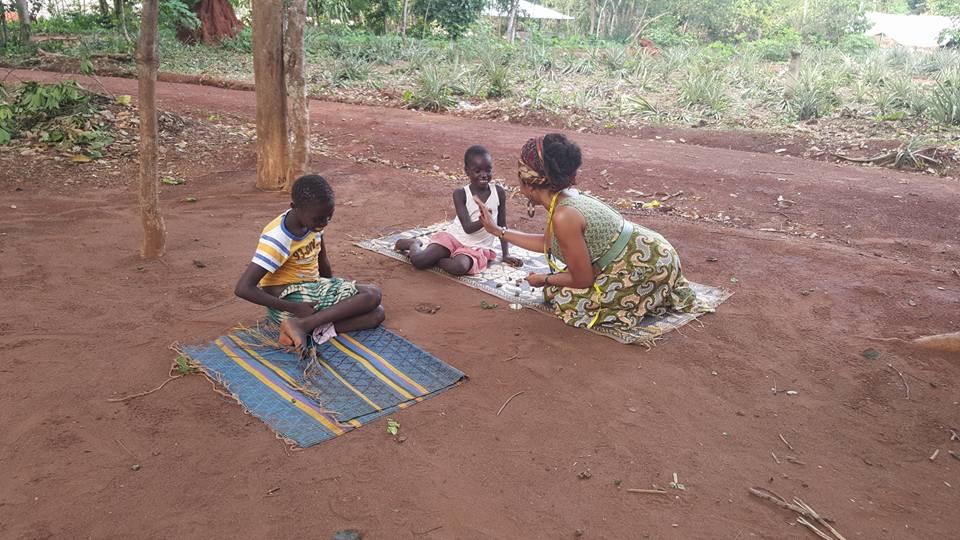The current state of the country Nigeria, is one that forces its citizens to adopt new ways of survival. The present trends of inflation and depreciation have further intensified the level of poverty and hardship. Thus, it has become increasingly difficult for children from humble backgrounds to be in good physical, social, and mental wellbeing. The entire situation is rather
conflicting because Nigeria has a Child Rights Act that in itself, is about 230 pages long. Various committees had been set up to ensure that the child rights are implemented. The responsibility of these committees was to establish safe water supply, create job opportunities for women so they have the means to take better care of their children, provide universal basic education, and improve health care systems. Even with these measures in place, it is sad to know that the challenges of the average Nigerian child have continued to persist. This article highlights the daily struggles of the typical Nigerian child from a low socio-economic background, albeit it does not thoroughly explore the severity of these challenges nor does it proffer solutions to them.
According to the United Nations Children’s Emergency Funds (UNICEF)
“One in every five of the world’s out-of-school children is in Nigeria”. And from our experience as a non-profit organisation, we can attest to these findings by UNICEF because we have seen that most parents struggle to send their children to school as they would rather have them hawking various food products on the streets, just to help make ends meet. These children are deprived of basic education because they are striving for survival. On the streets, they are exposed to various harmful events like car accidents, bullying, theft, sunburn, fatigue/stress, stigmatisation, and even death. “I was exposed to a lot of things at a very tender age and I almost got abused. While hawking, I had to make sure I finished everything I had to sell before returning home because that was the only way our survival could be guaranteed” says one of our scholars who was exposed to hawking at a young age. Our scholar continued to add that
“My experience on the street is a tough one. Most of the time, I am often abused by young boys who share tickets because of my inability to pay, even though I haven’t sold anything. I struggled to make it with my sister so we could continue our school but we couldn’t. “
Child labour has become a norm in Nigeria. According to the Nierian Bereau of Statistics in2017, 50% of Nigerian children 5-17 years old, are involved in child labour. The act of engaging children in activities that are far beyond their age level, is something that is common in many homes in Nigeria. Many children are even given off to people with the aim of performing household tasks like cooking, cleaning, washing, e.t.c, for a monthly fee to their parents. The children who suffer this are deprived from living life as a normal child. Their education, social lives and even their health are neglected and they are made to focus on being productive in serving their new ‘masters’. Although few children who are involved in labour are treated right, a good number of them barely survive the ordeal, and end up being sexually molested, have a form of disability, or are plagued with the effects of the hardship faced.
Insecurity in Nigeria is another rarely talked about topic, even though it is gradually spreading like a virus. The issues of banditry, insurgency, terrorism, pandemics, separatist agitations, etc have threatened the internal security of the nation and it all goes down to further threatening not just the economic security, but food security, health security, environmental, personal, and even
political security. This high level of insecurity, has birthed a list of challenges that children are direct victims of. These include; poverty, unemployment, kidnapping, etc. The event of the abducted Chibok school girls for example, is a direct result of terrorism attacks. These kids were only exercising their right to education. They had gone to school to gain an education but the security system of the country had failed them. They were abducted right in the school premises and till date, no one has any information regarding their whereabouts. Sadly, this event has become a thing of the past – A story!.
Another effect of insecurity on the average Nigerian child is hunger and malnutrition. The issue of herdsmen encroachment in our farms has made it difficult for farmers to cultivate crops for fear of their own lives. These herdsmen freely graze their cattle in whatever piece of land they find, killing whoever tries to obstruct them in the process. The cattle feed on the produce planted on the farmland, leaving little or nothing to be harvested by the farmer. As a result, food prices are constantly rising, making them unaffordable for persons of lower socioeconomic statuses. Now that hunger is a widespread problem, more kids are being forced into malnutrition, child labour, and retarded development.
It leaves you with the question “what is the fate of the Nigerian child?” Why is the system not built to foster healthy growth and development? If indeed there are policies in place, what are the loopholes? It is impossible to overstate the importance of civic organisations (like TIPAI) and well-meaning individuals in assisting in mitigating the effects of these difficulties. Numerou organisations have stepped forward to relieve the misery and hardship of the majority of these kids by giving food, education, vocational training, and financial support.
TIPAI being one of these civic organisations, has the vision of working towards an empowered African society enabled to rise above the clutches of poverty. We aim to do this by inspiring and empowering today’s vulnerable African generation especially women and children through capacity building, communication, and service provision for an improved standard of living and
sustainable development.
Being 10 years old this year, we can say that with the help of God, we have catered to 5000 children and 300 women, providing 10,500 supplies and 200 scholarships to children. And by the grace of God, we hope to multiply ourselves by ensuring that everyone around us keys into the mission of helping people especially children to give them a hope for a better future, creating the
environment for one.


